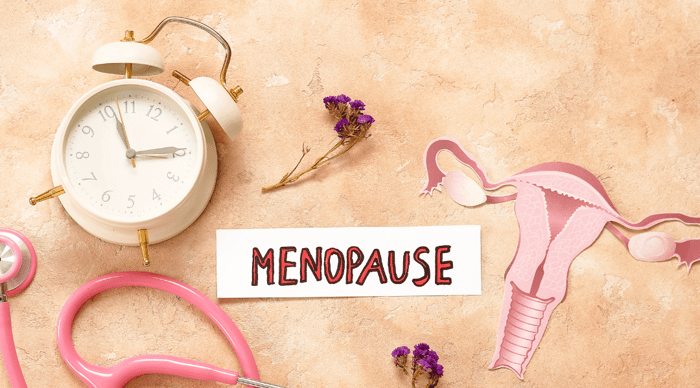Hormones are the silent conductors of your body’s orchestra - regulating everything from energy and mood to sleep, metabolism, and skin health. Once you hit your late 30s and 40s, you might start noticing subtle shifts (hello brain fog, bloating, or stubborn weight). The good news? You can support your hormonal health - naturally - through everyday nutrition and lifestyle habits.
Balancing hormones isn’t about extreme diets or quick fixes. It’s about nourishing your body with the right foods, creating calm in your nervous system, and honouring your unique rhythms.
Let’s dive into simple, science-backed ways to support your hormones so you can feel more vibrant, clear, and grounded at every stage.
Eat to Fuel, Not Fight Your Hormones
Your body needs key nutrients to build and regulate hormones, especially during perimenopause and menopause.
Here’s what to focus on:
-
Protein at every meal: Supports blood sugar stability and hormone production. Think eggs, organic poultry, legumes, or tofu.
-
Healthy fats: Cholesterol is the building block for sex hormones like oestrogen and progesterone. Include avocado, olive oil, nuts, seeds, and wild-caught fish.
-
Cruciferous vegetables: Broccoli, kale, and Brussels sprouts help detox excess oestrogen through the liver. Always consume cooked, not raw.
-
Fibre: Supports gut health and helps eliminate excess hormones. Aim for 25-35g/day from vegetables, flaxseed, oats, and lentils.
-
Minerals like magnesium and zinc: Crucial for adrenal and thyroid health. Find them in dark chocolate, pumpkin seeds, and leafy greens (1).
Balance Blood Sugar for Hormonal Harmony
Blood sugar imbalances are one of the most common (and sneaky) hormone disruptors. Spikes and crashes in glucose can stress your adrenals, increase cortisol, and mess with insulin and oestrogen levels.
Simple ways to stabilise blood sugar (2):
-
Eat protein and fat with carbs
-
Avoid skipping meals
-
Limit refined sugar and processed snacks
-
Try a 10-minute walk after meals to improve glucose response
Lifestyle Habits That Help Hormones Thrive
Hormones don’t just respond to food - they respond to how you live, rest, and move.
-
Prioritise sleep: Aim for 7–9 hours. Poor sleep raises cortisol and disrupts oestrogen/progesterone balance.
-
Gentle movement: Walking, Pilates, strength training, or yoga reduce stress and support insulin sensitivity.
-
Manage stress: Chronic stress increases cortisol and depletes progesterone. Daily deep breathing, meditation, or time in nature can help reset your nervous system.
-
Limit toxin exposure: Switch to natural skincare, avoid plastic containers (especially when heated), and buy organic when possible. Endocrine-disrupting chemicals can mimic or block hormones (3).
Final Thoughts
Your hormones don’t need fixing - they need support. By making consistent, intentional choices around food and lifestyle, you can help your body find balance naturally. Start small. Listen to your body. And remember, every nourishing choice you make adds up to more energy, clarity, and confidence.
Call us on 02476363873 or email us at hello@madebydaily.com to discuss your questions with a member of our clinical team.
Enjoyed this guide? Now read…
Feel Like Yourself Again: Hormone and Mood Support for Women
Menopause and Magnesium: Why It’s a Must-Have Mineral Right Now
Why Women Over 35 Need to Consider Detoxing: The Link Between Toxins and Hormonal Imbalance
References:
-
Institute for Functional Medicine. (2018). Nutrition & Hormone Balance.
-
American Journal of Clinical Nutrition. (2021). Glycemic response and hormonal regulation.
-
Environmental Working Group. (2022). Guide to Endocrine Disruptors.





